The Power of Digital Marketing for Small Businesses: Unlocking Growth Opportunities
Table of Contents

- jaro education
- 5, March 2024
- 2:00 pm
As customers increasingly turn to the Internet for shopping, digital marketing for small businesses must be a priority with a strong online marketing plan to stay competitive.
Regardless of what type of business it is – whether a small locally based multi-native coffee shop, a web-based e-business, or a smaller scale specific service provider company- digital marketing can prove highly beneficial in helping you win and retain more customers and generate stable revenue. Explaining the effectiveness of the digital medium already in 2022, Statista reports that global digital ad expenditure exceeded $500 billion (Approx INR 4195 Crore).
This blog will also discuss why digital marketing is important for small businesses, what strategies they can use to survive in such a competitive environment, and how Jaro Education’s focused courses can help entrepreneurs succeed in this rapidly changing digital environment.
Why is Digital Marketing Essential for Small Businesses?
Entrepreneurs know that they must make every rupee spent on marketing and advertising count since many of them operate small businesses. Digital marketing is the best solution because it enables businesses to narrow down their target market, monitor the effectiveness of the campaigns in real time and tweak them as necessary. Unlike traditional advertising methods, digital marketing offers the following benefits:
- Cost-Effectiveness: Online marketing makes better business output for most companies than any conventional form of marketing like the use of media like TV, radio or newspapers. Litmus claims that email marketing has an average ROI of $36 for every $1 invested (Approx INR 3000 for every INR 83 invested), making it a viable option for smaller businesses as well.
- Global and Local Reach: In digital marketing, you are not bound by the geographical locations of your business. New entrants can easily participate in international marketing by using ideas like SEO and social marketing. That way, tools like Google My Business and localized social media advertising help you to also target the core audience- customers from your area.
- Targeted Marketing: A strength of digital marketing is the ability to select very specific target audiences within the market. From age, geographical location, interests, or online behavior, it is possible to develop marketing strategies that are appealing to the target market.
- Measurable Results: Using Google Analytics, Facebook Insights and other tools for tracking email campaigns, the business can be able to evaluate the campaign. This data gives directions as to what is effective and which areas need some alterations so that marketing is effectively managed.
- Building Brand Awareness and Customer Loyalty: Marketing through social media and content development means that customers can be taken through the handles so that they can become serial customers of the small business. The kind of engagement that is carried out in this regard may result in increased customer loyalty and brand evangelism.
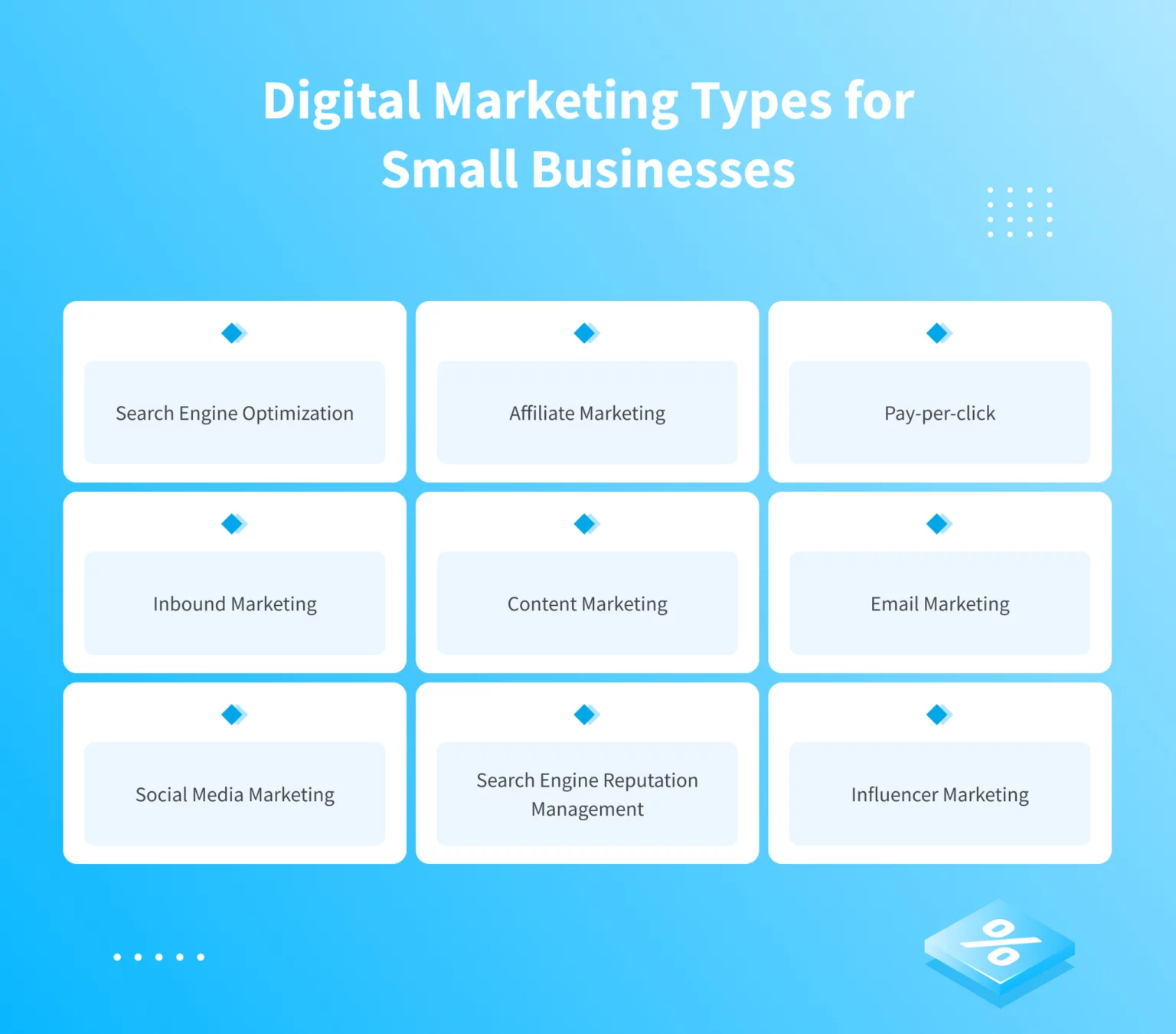
*nix-united.com
Digital Marketing Strategies for Small Businesses
For small businesses to get optimal returns on the investment they place in digital marketing, they must incorporate a number of media in their marketing campaigns that enhance the specific tools that will suit the specific businesses. Here are some essential strategies for digital marketing for small business:
Search Engine Optimization (SEO): SEO remains the most important factor affecting different kinds of business within the online market. The way to increase organic traffic is by ensuring that the website has a high ranking on various SERPs. The stats from Backlinko further illustrate this fact as research shows that 75% of users do not go beyond the first SERP.
Example Action Step: Learn how to improve your local SEO and spend time on Google Business Manager, attracting customers to leave positive feedback. Local firms that feature in the Google local search can make their offerings recognizable to passing customers in the area.
Social Media Marketing: Companies can immediately engage with their audience using different social media platforms such as Facebook, Instagram, and LinkedIn. Promotion is just a single facet of social media marketing – other elements involve sharing helpful content, addressing customer inquiries and grievances, and utilizing user-generated content.
Example Action Step: Use Facebook or Instagram to host competitions or remind viewers of your company’s core values to reinforce your bond with your clientele.
Content Marketing: We see content as the pillar of digital marketing. Informative blogs, lively videos or persuasive Call To Action can make your brand popular by making your establishment well-known in your line of business. Not only does it increase confidence with potential consumers in the company’s goods and services, but also enhances S.E.O ranking.
Example Action Step: Design an informative article or a guide, where you offer solutions for some of the challenges your target audience may face, and promote it via your marketing platforms to attract more traffic to your website.
Email Marketing: Albeit the social media paths, emails are still a potent way to keep the leads stable and clients engaged.
Example Action Step: It is recommended to segment your emails so that your messages correspond to a particular phase of the buyer’s journey.
Pay-Per-Click (PPC) Advertising: Google Ads or Facebook Ads, for instance, help a business reach its target clientele faster through PPC advertising. A huge advantage of PPC is that it is inexpensive for small businesses because you only pay per click.
Example Action Step: If your budget is limited then begin with a low amount and gradually change the ad text, selection of target options, and images.
Importance of Digital Marketing for Small Businesses
The rising globalization of digital technology and the involvement of all sectors in online technology imply that firms without online marketing presence miss many good opportunities. By choosing digital marketing, enterprises not only remain extraordinary but also can compete with significant companies on a more equal basis. Here are a few key reasons why digital marketing for small business is crucial:
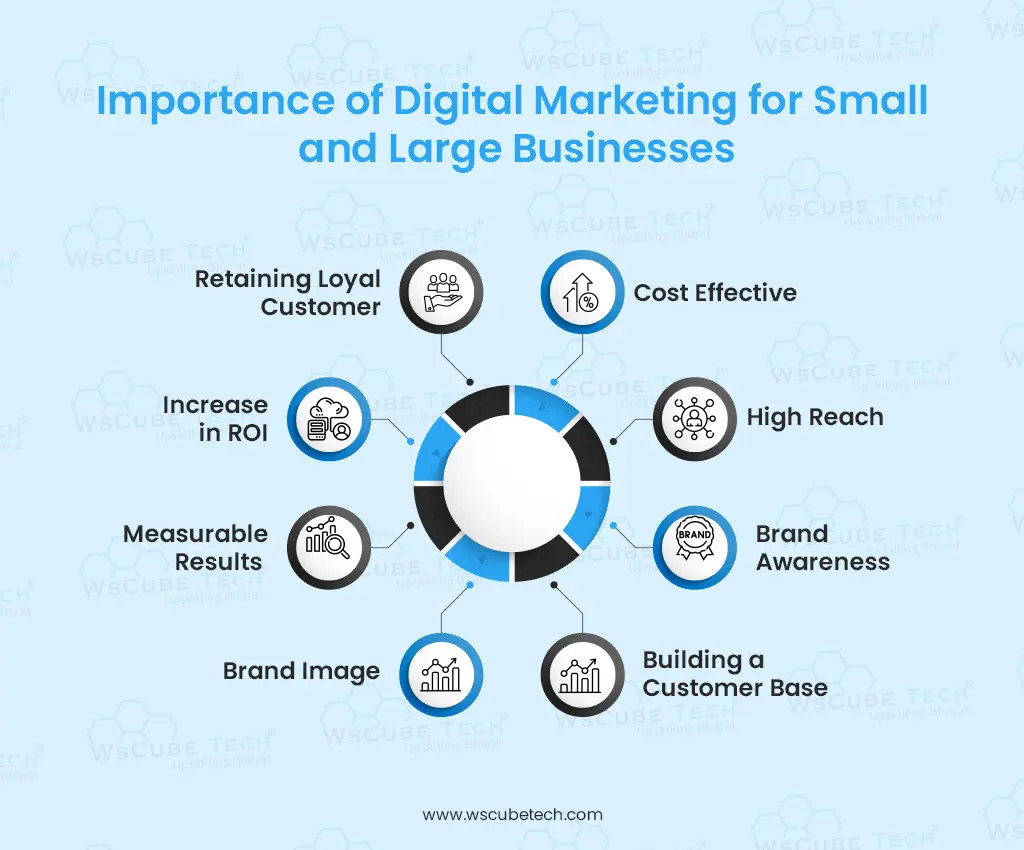
*wscubetech.com
- Customer Expectations: The modern world demands the company’s establishment on the Internet. However, according to Think with Google, 42% of in-store shoppers use the Internet to conduct their research before making a purchase while in-store. These expectations can only be met through a well-optimized website, a strong social media presence as well as engaging content.
- Competitor Presence: Your competitors have already been investing in digital marketing and by not doing the same, you will have a high chance of losing potential customers to them.
- Future-Proofing: Technology is a dynamic variable that is crucial in business organization and management. The advantages of digital marketing are that it helps companies adapt to the changes occurring in the world and uses them for one’s own benefit and adaptation.
How Jaro Education Can Assist in Achieving Your Digital Marketing Goals
Jaro Education has offered a platform that can enable it to compete effectively as an online educational institution by providing courses that help students close the gap between their current and desired skill levels in their various fields. So whoever is a small business owner thinking of growing their knowledge in digital marketing or a marketer who is aspiring to kick start in the industry, Jaro Education has advanced programs to suit your needs.
About Jaro Education
Some of the renowned partners of Jaro Education include the IIM, Deakin University, and Swiss School of Management and other leading B schools to deliver the best online courses as per the industry requirements. Strong on theory and practice, their programs offer the student everything he or she needs for success in today’s rapidly developing digital world.
How Jaro Helps Small Business Owners
Jaro Education offers digital marketing courses involving means in digital marketing that help small business owners adopt digital initiatives aims. These courses not only include the basics of SEO to the more complex approaches to content marketing so that every business will succeed. In addition, Jaro’s classes are offered through Distance Learning so working young entrepreneurs have the time to study.
Here’s a detailed overview of the Professional Certificate Programme in Digital Marketing for Performance & Growth offered by IIM Kozhikode through Jaro Education:
Institution: IIM Kozhikode, a prestigious Indian business school with a reputation for excellence in executive education.
Program Focus: Created to help participants develop their digital marketing capabilities for better performance and career progression, relevant to practitioners.
Duration: 10 months, with the flexibility of synchronous and asynchronous sessions added with campus modules at IIM Kozhikode.
Eligibility: Visitants including professionals, business owners and marketers seeking to enhance their digital marketing skills are welcome.
Certification: After completing the programme, participants earn a Professional Certificate from IIM Kozhikode.
Learning Methodology: Based on examples from daily practice, problem-solving tasks, and group activities.
Key Learning Areas:
- Digital Marketing Strategies: Get to know strategies for creating campaigns or advertisements that will easily get the attention of people and help businesses achieve their goals by using data on advertising.
- SEO, SEM, and PPC: Become knowledgeable in SEO, SEM and pay-per-click campaigns.
- Social Media Marketing: Explore the best social media marketing strategies to enhance interaction with audiences to generate various business outcomes.
- Content Marketing: Examine the content marketing strategies that are most efficient to engage given target audiences.
- Analytics and Reporting: Use marketing analytics tools to measure performance and optimize campaigns.
- Email Marketing and Automation: Discover how to make professional campaign offers tailored to individual consumers and increase sell-through rates using automation technology.
- Influencer Marketing: Discuss partnerships with opinion leaders for the growth of brand awareness.
Is your business lacking the leverage it needs to reach customers or partners? Join Jaro Education’s Digital Marketing program now to gain the know-how and get your digital marketing for small business going.
Final Thoughts
It is important to recognize that digital marketing is a must-have tool in the toolbox of any small business. Thus, the adoption of these aspects, the timely identification of key trends, getting to know effective practices and the optimization of campaigns over and over again will help small businesses become successful in the current environment. Digital marketing is not just the way of the future, it is the only way to remain viable and profitable for the future.
Jaro Education offers some of the best professionally designed programs that empower small business owners with the knowledge and expertise of the winning strategies to adopt in the digital world. Whether you are a beginner in your business or thinking about its growth – the best thing you can do is to give more attention to your digital marketing learning process.
Frequently Asked Questions
Small businesses keep their marketing budget at 7-8% of their total revenue as most of it goes to digital marketing. Nevertheless, the number could be different depending on estimations and exact strategies of the company and the sphere in which it operates.
As such, there is no common solution to using the Internet to market your business. However, SEO, content marketing, and email marketing are preferred on average.
Digital marketing results differ depending on the approach that is used in the process. SEO and content marketing campaigns often require 3-6 months to reflect high impact whereas a PPC campaign shall deliver an impact much sooner.
Even though small business owners can do digital marketing themselves, they should hire an agency or at least take a course like the one at Jaro Education.
Marketing analytics are metrics that help in understanding the level of a company’s performance, such as the number of website visitors, conversion rates, and engagement metrics -all of which should be measured with the help of tools, for instance, Google Analytics.



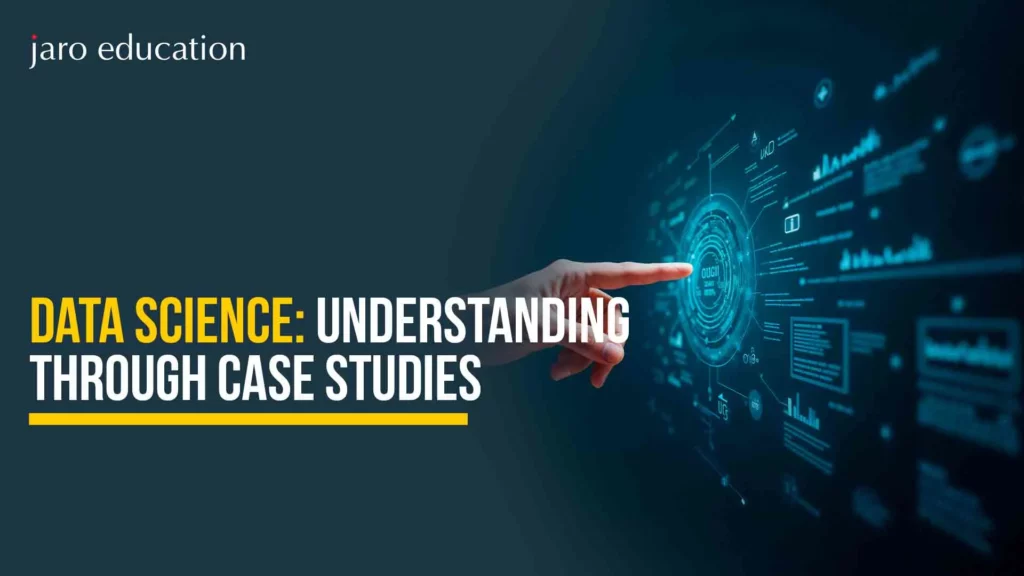

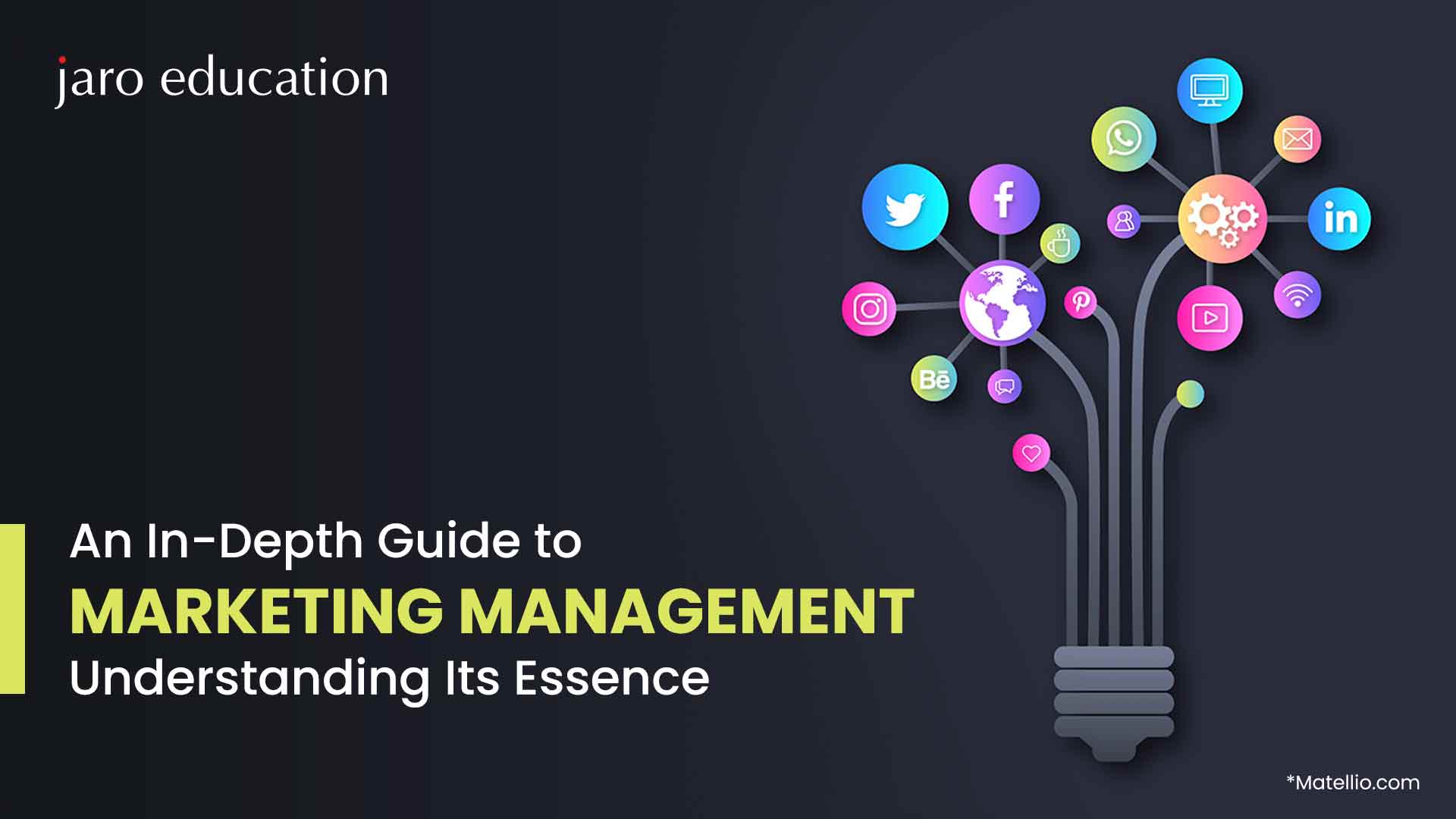
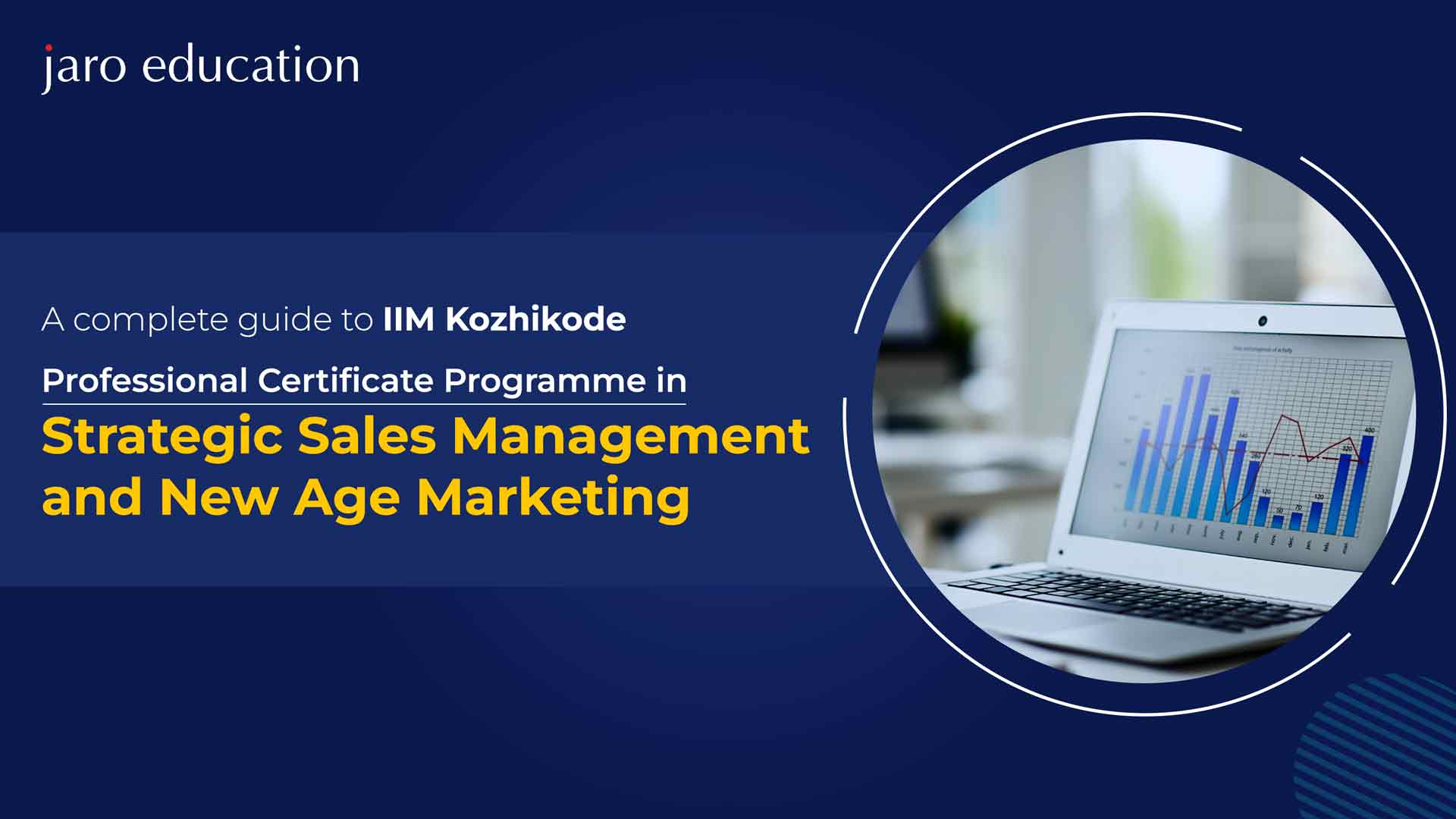



2 thoughts on “Why Digital Marketing is Important for Small Business?”
your infomation about digital marketing was valueable i like your blog and skills,
Thank you so much!